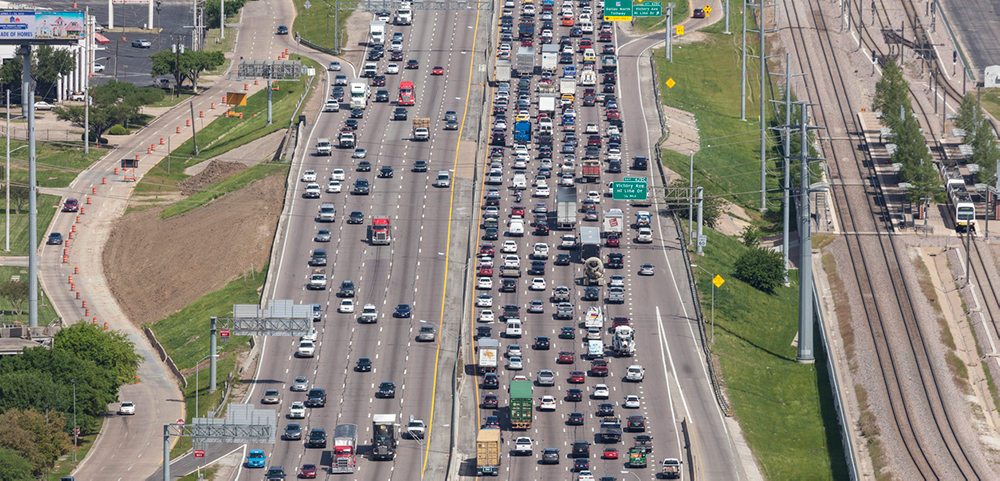The Dallas-Fort Worth region is one of the fastest-growing and most dynamic in the nation. From February 2018 to February 2019, North Texas added over 100,000 new jobs, more than any other metro area in the country except New York. The unemployment rate in North Texas is 3.6 percent, significantly below the 4.1 percent national average.
But this growth presents challenges. Land-use regulations in some established cities have pushed most of this growth out to the fringes of North Texas, in places like central and northern Collin and Denton counties, creating a serious transportation challenge. According to the consultancy INRIX, the average Dallas driver lost 76 hours every year to traffic congestion in 2018. And suburbs are developing in a way that leaves most people no choice but to drive everywhere — largely the result of regulations that require massive parking lots in every new development, making driving artificially cheap and walking unpleasant.
The result? North Texas workers are taking longer to travel to work, even as they travel shorter distances. From 2009 to 2017, the average distance that local workers commuted during rush hour fell by a mile, even as the average time they spent increased by three minutes. The frontier of new development in the metro area, in towns like Frisco and McKinney, is already well out of commuting distance for downtown Dallas, guaranteeing that a large amount of economic growth will be in suburban areas instead.
Continue reading the entire piece here at The Dallas Morning News
______________________
Connor Harris is a policy analyst at the Manhattan Institute. Follow him on Twitter here.
This piece originally appeared in The Dallas Morning News
